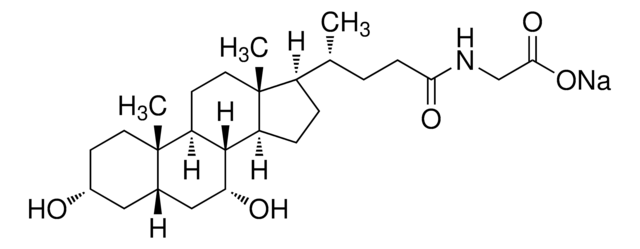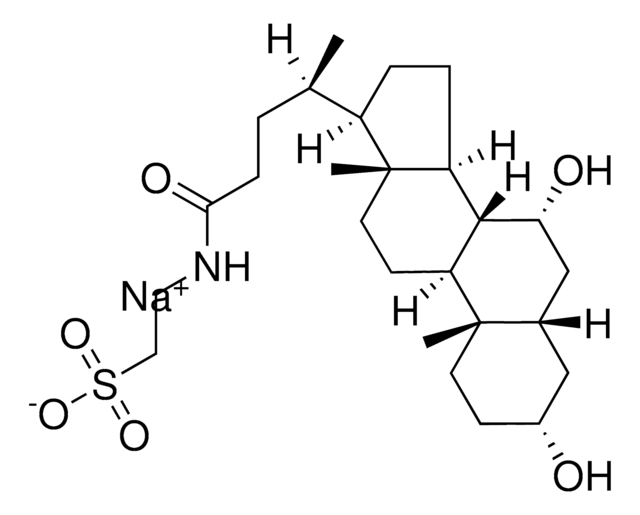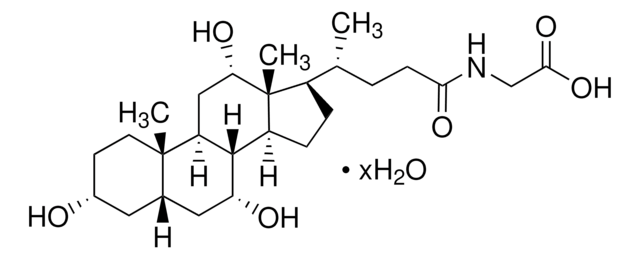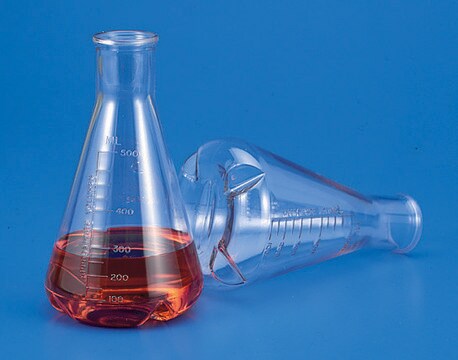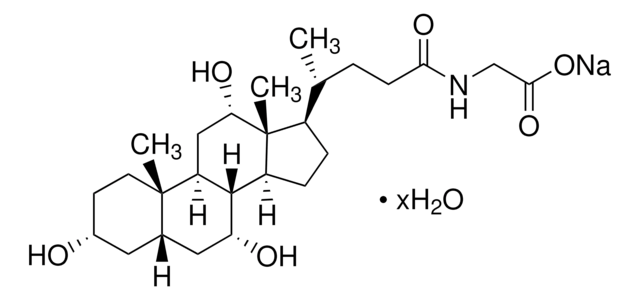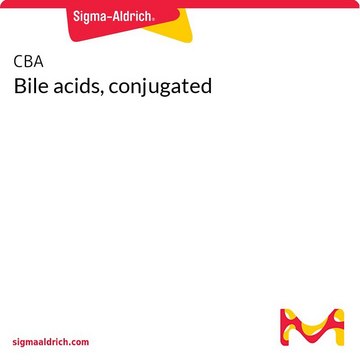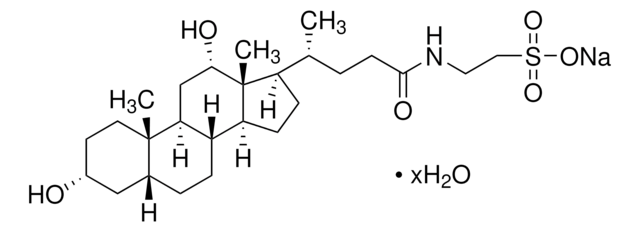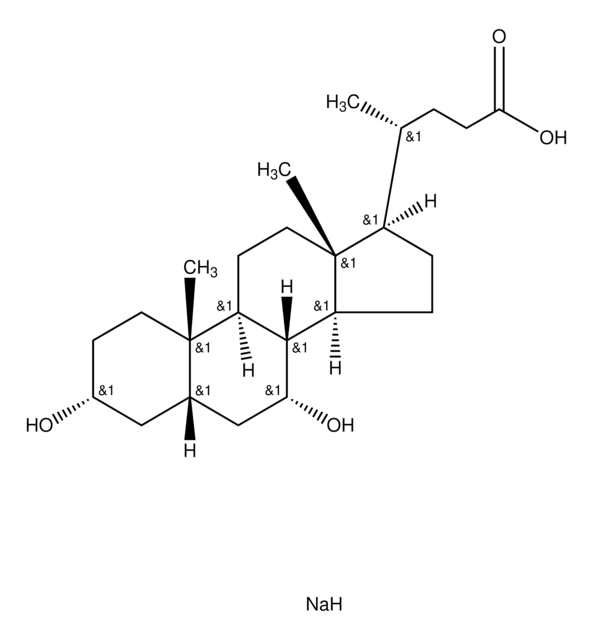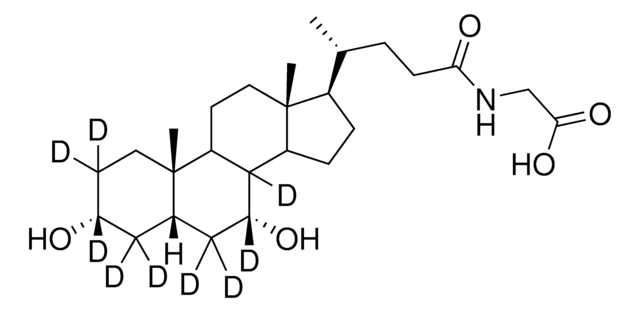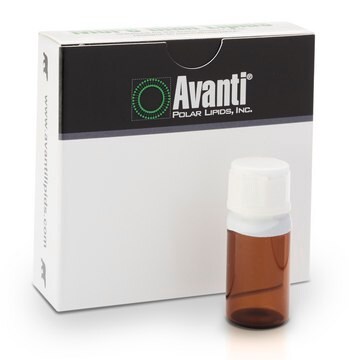G0759
Sodium glycochenodeoxycholate
Synonym(s):
3α,7α-Dihydroxy-5β-cholanoic acid N-(carboxymethyl)amide sodium salt, Glycochenodeoxycholic acid sodium salt, N-(3α,7α-Dihydroxy-24-oxocholan-24-yl)glycine sodium salt
About This Item
Recommended Products
description
anionic
Quality Level
form
powder
mol wt
471.61 g/mol
technique(s)
HPLC: suitable
protein quantification: suitable
functional group
sulfonic acid
shipped in
ambient
storage temp.
room temp
SMILES string
[Na+].C[C@H](CCC(=O)NCC([O-])=O)[C@H]1CC[C@H]2[C@@H]3[C@H](O)C[C@@H]4C[C@H](O)CC[C@]4(C)[C@H]3CC[C@]12C
InChI
1S/C26H43NO5.Na/c1-15(4-7-22(30)27-14-23(31)32)18-5-6-19-24-20(9-11-26(18,19)3)25(2)10-8-17(28)12-16(25)13-21(24)29;/h15-21,24,28-29H,4-14H2,1-3H3,(H,27,30)(H,31,32);/q;+1/p-1/t15-,16+,17-,18-,19+,20+,21-,24+,25+,26-;/m1./s1
InChI key
AAYACJGHNRIFCT-YRJJIGPTSA-M
Looking for similar products? Visit Product Comparison Guide
General description
Application
Biochem/physiol Actions
replaced by
Storage Class Code
11 - Combustible Solids
WGK
WGK 3
Flash Point(F)
Not applicable
Flash Point(C)
Not applicable
Personal Protective Equipment
Certificates of Analysis (COA)
Search for Certificates of Analysis (COA) by entering the products Lot/Batch Number. Lot and Batch Numbers can be found on a product’s label following the words ‘Lot’ or ‘Batch’.
Already Own This Product?
Find documentation for the products that you have recently purchased in the Document Library.
Customers Also Viewed
Articles
Isobaric separation of bile acids and conjugates by LC-MS/MS on Ascentis® Express C18 column with excellent resolution and linearity.
Today, diverse studies report the benefits of probiotics, such as inhibitory effects on pathogens, aid in the management or prevention of chronic intestinal inflammatory diseases or atopic syndromes, and support to the immune system. Potential beneficial applications abound, researchers continue to evaluate the effictiveness and clarify the mechanisms of action of probiotics.
Protocols
This method is particularly useful in research into the role of individual bile acids as signaling molecules; suitable for clinical laboratories to investigate potential mechanisms linked to gut hormone profiles and glycemic control.
Related Content
Bile Acids (BA) are synthesized in the liver and play important roles in cholesterol homeostasis, absorption of vitamins and lipids, and various key metabolic processes.
Our team of scientists has experience in all areas of research including Life Science, Material Science, Chemical Synthesis, Chromatography, Analytical and many others.
Contact Technical Service